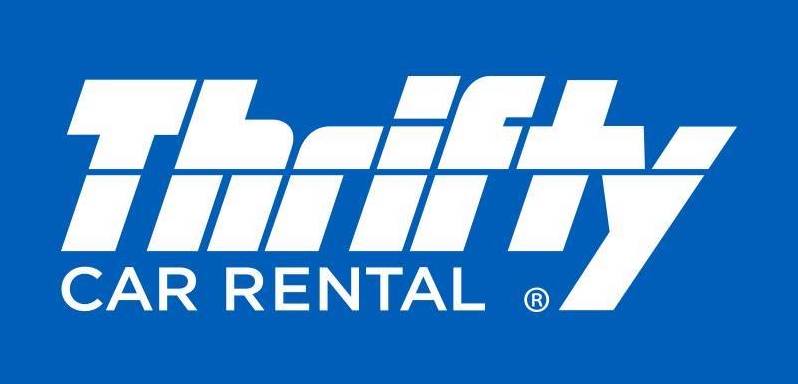Best Advice To Choosing A Car Rental Website
Best Advice To Choosing A Car Rental Website
Blog Article
What Is The Best Way To Review The Insurance Coverage Offered By The Rental Company When Renting A Vehicle?
It is crucial to examine the insurance options and coverage provided by the rental company in order to avoid any unnecessary costs and to ensure that you're adequately secured. Understanding the basic coverage first. You need to be aware of the coverage provided in the rental contract. The majority of rental companies offer basic liability coverage, which protects property of third parties and bodily injuries in the event of an accident in which you are at the fault. The policy is subject to restrictions and deductibles.
Check out additional coverage options. Many rental companies offer optional insurance packages in addition to their basic coverage to provide you with additional security. The most common types of additional insurance include Collision Damage Waiver (CDW) which eliminates or reduces your financial responsibility for damage to the rental vehicle, and Loss Damage Waiver (LDW), which covers theft or damages to your rental car.
Examine the limits of coverage and deductions. Examine the limits for coverage and deductibles for each insurance type. Find out how much the insurance will cover for loss or damage in addition to the amount you will have to pay (deductible) prior to when the coverage starts.
Make sure you check your personal auto insurance Policy: Find out whether any of your policies or your credit cards provide coverage for rental vehicles. Some credit card companies offer secondary insurance for rental cars when you make payments using the card. Your personal auto insurance may also cover rental vehicles however the coverage will depend on the policy and insurance company.
Examine your risk tolerance. When deciding if you should buy additional insurance, consider your financial situation and your risk tolerance. If you're looking to have peace of mind and are worried about the possibility of theft or damage of your vehicle, purchasing additional coverage could be worth it. If you're covered elsewhere, you can choose to skip the insurance provided by the rental firm to save money.
Ask about Exclusions. It is important to inquire with the company that you rent from if there are any limitations on insurance coverage. Some examples include restrictions on off-roading or driving without authorization, drivers, or commercial use. Be sure to be informed of all the terms of the coverage in order to avoid unpleasant surprise.
Document Damages that Exist. Before you accept the rental, thoroughly inspect the vehicle to determine if there is any wear and tear. Document any scratches or dents on the rental contract and take pictures or videos for proof. This will protect you from being held liable for pre-existing damages when you return the vehicle.
If you carefully review the insurance policies and options provided by the rental company and comparing them with your own, you can make informed decisions to ensure you have the right protection throughout the rental period, while also reducing the amount of unnecessary expenses. See the top Worldwide car rentals for more advice including car hire rent a car, rent a car mercedes, car rental usa, near me rent a car, extotic car rental, driving a rental car, day by day car rental, car for 1 day rent, drive rent a car, rent a car luxury car and more.
How Can I Examine My Car For Any Damage Or Wear?
To avoid being held accountable for previous issues when returning and to avoid being held accountable for any pre-existing issues, you must examine the rental car prior to signing. These steps can help you make sure you have a thorough inspection:
Take a walk around the exterior of the vehicle and take a close look at the body for scratches, dents, damages, or dings.
Pay attention to any areas susceptible to being damaged such as doors and bumpers.
Look for any cracks or chips on the windshield or windows.
Check the undercarriage of the vehicle for any signs of damage or leaks.
Interior Inspection
Check the interior by opening the doors and the trunk.
Examine the carpets, seats and upholstery for stains tears, or wear that is excessive.
To ensure that all adjustments work properly, check the adjustment of the seat and seat adjustment, including those on the driver's side.
If you spot any damage, check the dashboard and steering wheel.
Examine the air conditioning, heating and ventilation systems.
Test the audio system, lights as well as turn signals and other electronic functions.
Functional Inspection
Get the car started then check the dashboard for any errors or warnings.
Check that the brakes, the clutch, and accelerator (if necessary), all work smoothly.
Make sure you turn on the headlights as well as high beams, brake lights and turn signals to verify they're working properly.
Examine your windshield wipers, along with the washer fluid as well as the horn.
Document all damage:
Note any issue or damage with a rental agreement offered by the company renting out your car or via an app on your smartphone.
Make multiple videos or photos from various angles of the vehicle, paying focus on areas that show signs of damage.
Please make sure to note on the rental agreement the size, location and severity for any damage, such as scratches or dents.
You must inform the representative from the rental company of any damage before you take the car.
Report Damage
Inform the agent at the rental company of any damage you might discover during your inspection.
They should document the damage and send you a report of the inspection.
The representative of you and the rental company should sign the rental agreement or inspection report in order to acknowledge any damages.
You can avoid the risk of being held accountable through these measures and examining the car carefully for wear or damage prior to accepting it.
What Conditions And Terms Apply To The Return Of The Rental?
When reviewing the terms and condition for returning a rental car, you should consider several aspects to ensure a simple and painless return. Here are some key points to take into consideration: The designated location Make sure that the rental agreement stipulates an agreed-upon drop-off location. Return the car at the exact spot agreed with the business. There are multiple drop-off points for various rental companies such as airport terminals and rental offices. Confirm that you are at the correct location.
The rental agreement should be reviewed for the acceptable return time. Rental companies typically provide the return time, date and the location of the vehicle. Ensure that you return the car before the specified date to avoid any penalties or late fees.
Late Return Penalties - Read the policies of the rental company regarding late return and any penalties in connection with it. Returning the vehicle after the scheduled return time may result in late fees, additional fees or penalties. Certain rental companies might charge the full cost of rental for each day or partial day if the vehicle is returned late.
Ask about your options for an extension. Some rental companies will allow you to extend your rental period. It is contingent on availability and could incur additional fees. If you require an extension, contact the rental company in advance.
Return Condition Requirements - Acquaint your self with the conditions for returning your rental vehicle in good working order. Rental agreements generally specify that the vehicle be returned in the same condition as the day it was taken away. Take note of any specific directions for cleaning the vehicle or taking away personal belongings prior to returning it.
After returning the vehicle, take the time to inspect the vehicle thoroughly. Look for any issues or damage that has occurred in the course of renting. Note any concerns or damage that has occurred and bring them to the attention to the representatives of the rental company.
Return Process: Understand the process of returning, including any procedures or paperwork required when returning the rental car. Follow the instructions given by the rental agent to return keys, filling out paperwork and receiving the final confirmation, or receipt.
If you go through these terms and conditions and consider the factors listed above, you will be able to comply with any rental company requirements and avoid any penalties or issues.